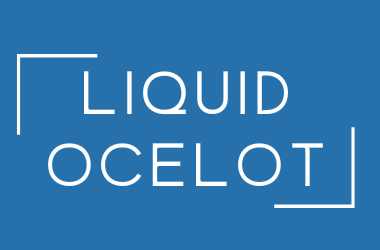ChatGPT Gets A Rival: LLaMA From Meta
ChatGPT Rival Announcement From Meta
ChatGPT Gets A Rival: LLaMA From Meta
LLaMA Challenges ChatGPT from Meta
Introduction
The Large Language Model Meta AI (LLaMA), a new AI-based research tool from Meta Platforms, Inc., formerly Facebook, is revolutionising the chatbot industry (LLaMA). It is anticipated that ChatGPT, the dominant chatbot platform at the moment, will face fierce competition from it.
With LLaMA, Meta is bringing a new level of sophistication and accuracy to the chatbot development process that has the potential to completely change the industry.
What is Meta’s LLaMA?
Formerly known as Facebook, Meta Platforms, Inc. has introduced a brand-new research tool called the Big Language Model Meta AI (LLaMA). For the benefit of researchers in the branch of artificial intelligence, the California-based computer giant has released LLaMA as a cutting-edge foundational language model. Following the closure of Glactica and Blender Bot 3 due to unfavourable outcomes, this is the company’s third Attempt. According to Meta, issues with AI language models will likely be addressed by LLaMA, a group of language models with parameters ranging from 7B to 65B.
LLaMA is a research tool that will allow academics to investigate novel use cases rather than being fundamentally a chatbot. The models are developed using public datasets and trillions of tokens, which Meta argues will democratise access to the rapidly evolving area of AI. Smaller foundational models, like LLaMA, are recommended for training because they need very little processing power and resources to test, validate, and investigate novel use cases. The fact that foundational language models are known to train on huge amounts of unlabelled data makes them perfect for task-specific modification.
In accordance with Meta, LLaMA will be available in sizes with the following characteristics: 7B, 13B, 33B, and 65B.
LLaMA hasn’t yet been applied to any of the company’s products, but Meta intends to provide researchers access to it. The business has also made the LLaMA model source code accessible to outsiders so they can understand how the system functions and tweak it as well as work together on related initiatives.
We will make our new model public to the AI research community since Meta is committed to this open research strategy, according to Mark Zuckerberg.
According to a statement from the company, “To safeguard the integrity and prevent misuse, we are providing our model under a non-commercial licence focused on search use cases.” Academic researchers who are connected to organisations in government, civil society, academia, and business research laboratories worldwide will be given access to the model on a case-by-case basis.
Check out official blog post regarding LLaMA from Meta-
As part of Meta’s commitment to open science, today we are publicly releasing LLaMA (Large Language Model Meta AI), a…ai.facebook.com
How does LLaMA compare to ChatGPT?
LLaMA from Meta is a collection of fundamental language models with parameters ranging from 7B to 65B that can be utilised to investigate novel use cases.
According to Meta, LLaMA will perform as well as or better than DeepMind’s Chinchilla70B and Google’s PaLM-540B on most benchmarks, as well as outperform OpenAI’s GPT-3 (175B). Unlike ChatGPT, LLaMA is a research tool that enables academics to investigate novel use cases rather than a standalone chatbot. In addition, the business has made the source code accessible to outsiders so they can examine how the system functions and tweak it as well as work together on related initiatives.
As a cutting-edge fundamental language model, LLaMA was made available by Meta to support academics working in the area of AI. The models are developed using public datasets and trillions of tokens, which Meta argues will democratise access to the rapidly evolving area of AI.
By making their model available under a non-commercial licence that is centred on search use cases, Meta intends to preserve the model’s integrity and guard against exploitation. Academic researchers, individuals connected to organisations in government, civil society, academia, and industrial research laboratories worldwide will be given access to the model on a case-by-case basis.
Get an email whenever Liquid Ocelot publishes. By signing up, you will create a Medium account if you don’t already…medium.com
